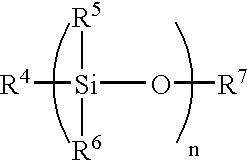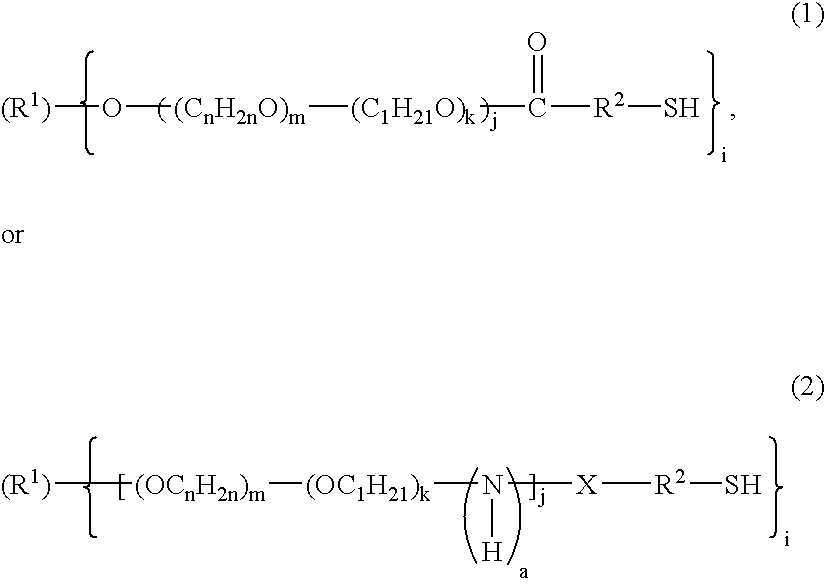(POLY)oxyalkylene block silyl ester copolymer, antifouling coating composition, antifouling coating formed from antifouling coating composition, antifouling method using antifouling coating composition and hull or underwater structure covered with antifouling coating
a technology of polyoxyalkylene block and ester, which is applied in the direction of antifouling/underwater paint, medical preparations, pretreatment surfaces, etc., can solve the problems of increasing the fuel consumption of the ship, reducing the speed of the ship, and the bottom of the ship, so as to reduce the use of solvents, and improve the antifouling performance.
- Summary
- Abstract
- Description
- Claims
- Application Information
AI Technical Summary
Benefits of technology
Problems solved by technology
Method used
Image
Examples
example 1
(poly)oxyalkylene Block Silyl Ester Copolymer (BP-1)
100 parts of xylene was charged in a reaction vessel equipped with an stirrer, a condenser, a thermometer, a dropping device, a nitrogen introduction tube and a heating / cooling jacket, and heated under stirring at 85.degree. C. while blowing nitrogen thereinto. A mixture of 40 parts of triisopropylsilyl acrylate, 55 parts of methyl methacrylate, 1.5 parts of mercapto compound M-1 defined below and 1 part of 2,2'-azobisisobutyronitrile as an initiator was dropped through the dropping device into the reaction vessel while maintaining the above temperature over a period of 2 hr. The stirring was continued at the same temperature for 4 hr. Further, 0.4 part of 2,2'-azobisisobutyronitrile was added, and the agitation was continued at the same temperature for 4 hr. Thus, a colorless transparent solution of (poly)oxyalkylene block silyl ester copolymer (BP-1) was obtained.
The heating residue (residue resulting from drying in a hot air dry...
examples 21 to 48
Preparation of Antifouling Coating Composition
The components of each of the formulations of Table 2 were charged into a paint shaker packed with glass beads as media, shaken for 2 hr, and filtered through a 100-mesh filter, thereby obtaining the desired antifouling coating compositions.
With respect to each of the antifouling coating compositions, the storage stability exhibited after storage at room temperature for two months was evaluated.
The results are also given in Table 2.
Evaluation of storage stability was made on the basis of an increment of viscosity (Ku value at 25.degree. C. measured by a Stormer viscometer) exhibited by storage at room temperature for two months after the paint production by the following measure.
(Criterion for Evaluation)
5: viscosity increment is less than 10,
4: viscosity increment is in the range of 10 to less than 20,
3: viscosity increment is in the range of 20 to less than 30,
2: viscosity increment is 30 or greater, and
1: there is no fluidity, and mea...
PUM
| Property | Measurement | Unit |
|---|---|---|
| thickness | aaaaa | aaaaa |
| diameter | aaaaa | aaaaa |
| diameter | aaaaa | aaaaa |
Abstract
Description
Claims
Application Information
 Login to View More
Login to View More - R&D
- Intellectual Property
- Life Sciences
- Materials
- Tech Scout
- Unparalleled Data Quality
- Higher Quality Content
- 60% Fewer Hallucinations
Browse by: Latest US Patents, China's latest patents, Technical Efficacy Thesaurus, Application Domain, Technology Topic, Popular Technical Reports.
© 2025 PatSnap. All rights reserved.Legal|Privacy policy|Modern Slavery Act Transparency Statement|Sitemap|About US| Contact US: help@patsnap.com



